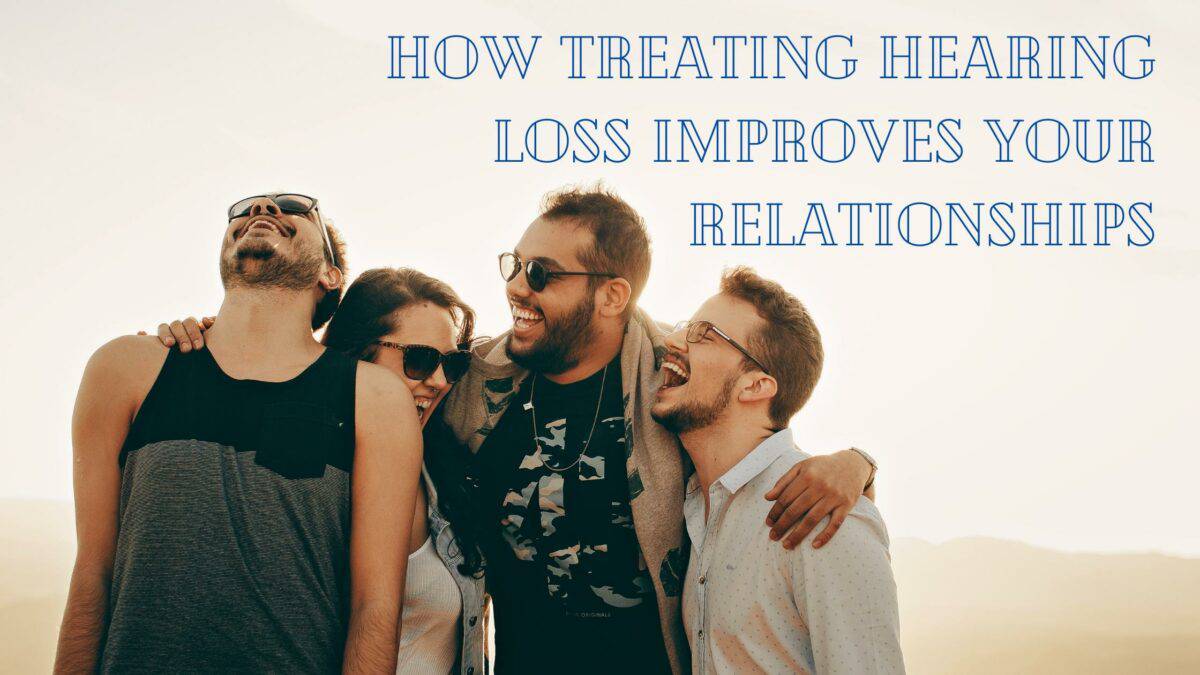You might have heard that good relationships are built on communication. In fact, couples therapists often recommend techniques and strategies to improve communication when a relationship is on the rocks. Although two people may care deeply for one another and have a firm commitment to the relationship, sometimes conversations can feel like two people speaking different languages.
Without the ability to become fluent in another person’s communication style, the relationship can suffer. With these many complexities of communication in mind, you might wonder what steps you can take to have better communication with your family, loved ones, and romantic partner. Although communication happens in many ways through the multi-sensory experience of sharing meaning with others, one simple step you can take to improve your relationships is to get treatment for hearing loss.
How is hearing loss related to these deeper issues of relationship health? Let’s take a look at the ways that hearing loss can get in the way of disclosing deep parts of yourself, as well as the benefit of casual conversation for a safe and healthy relationship.
Communication and Disclosure
One of the ways that we communicate with others is through disclosure. When we share something about ourselves that is very personal, private, emotional, or even shameful, we are initiating a trusting encounter. By making ourselves vulnerable to others, we are also letting them know that we trust them to hear what we have to say and to continue caring for us after having this knowledge. Of course, this trusting encounter can break down in many ways, but the inability to communicate easily is one of the most common ways that deep disclosure is inhibited. Take, for example, a person who wants to share their feelings with their partner.
When they initiate a conversation about these deeply held feelings, it’s possible that a person with hearing loss would miss out on some of the context or content of those feelings. With such a challenging communication process underway, the person who is trying to disclose feelings can feel rejected or abandoned. This breach of trust is not due to the intentions of the person but simply due to untreated hearing loss. Those who have untreated hearing loss also develop a wide range of coping strategies to make it seem as if they are understanding. These can go quite wrong when it comes to the disclosure of personal feelings or thoughts.
Communication and Casual Conversation
Although some of us demonstrate vulnerability and trust through deep disclosures, others of us seldom make these bids for intimacy. Instead, we live with our partners, families, and friends in a state of casual conversation. You might think that this kind of conversation doesn’t have much to do with the quality of relationships, but research has demonstrated just the contrary. Relationship experts have found that we rely on the casual sharing of information, opinions, and jokes to build trust in a day-to-day sense.
When we can rely on others to hear what we have to say and to remember, we build deep relationships that extend backward in history as well as forward into the future. This sense of shared time and knowledge of one another is one of the powerful ways to build trust with a partner or family member, even when it doesn’t include the disclosure of deeply held feelings and thoughts. Once again, hearing loss can be a detriment to this kind of relationship-building. Particularly the comments that are difficult to hear from across the room or when they are casual asides can be the very comments that build trust in another’s presence.
If you are worried about these dimensions of your relationships, it might be that hearing loss is getting in the way of good communication. Beginning with a hearing test, our specialists can diagnose your ability, paying particular attention to the contexts in which you find it difficult to communicate. With this information in hand, we can provide recommendations for hearing aids that can give you the support you need to communicate with your loved ones once again. You just might be contributing to healthier relationships in the process of seeking treatment for hearing loss!

